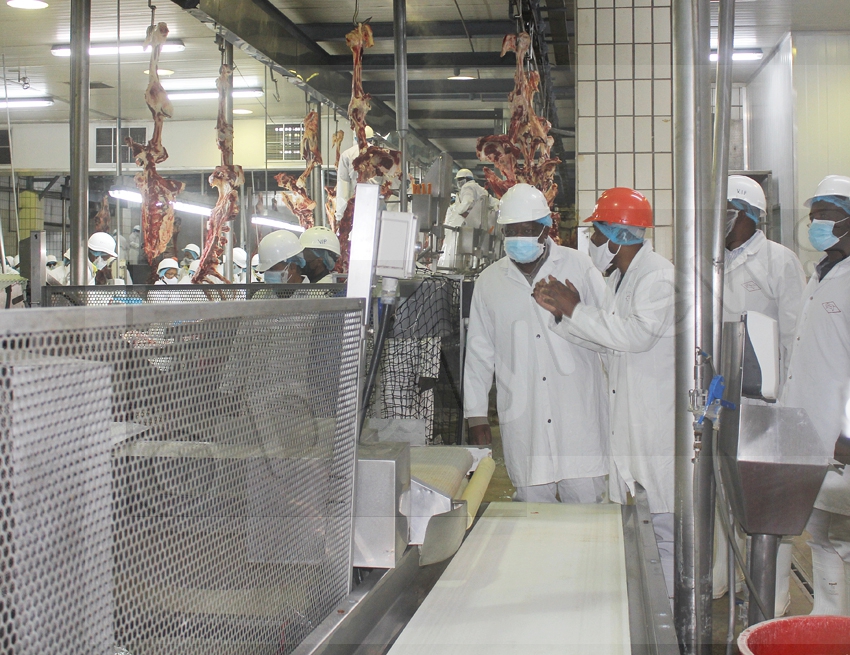Subsidise Ngamiland beef farmers - Kekgonegile
15 Mar 2022
The market and transportation costs challenges incurred by farmers in North West district has rendered the cattle farming less profitable.
Maun East legislator, Mr Goretetse Kekgonegile said this when presenting his motion in Parliament which requested government to consider supplementing North West District cattle farmers who sell their cattle to Botswana Meat Commission (BMC) in relation to the cost of quarantining cattle for 30 days prior to slaughter.
He said pastoral farming was paramount to the economy of Ngamiland.
However, Mr Kekgonegile said as a result of numerous challenges, the livestock population had over the years been reduced drastically.
Mr Kekgonegile said some households whose livelihoods were largely dependent on livestock were relegated to pauper status, therefore becoming dependent on social grants.
The farming community, he said, was eager to work closely and remove all impediments hampering the growth of the industry noting that in the past, the beef industry used to contribute more than 50 per cent to the GDP.
Currently, he said the beef industry was not making profit, noting that on average, Maun BMC abattoir had been receiving about 14 000 cattle per annum and the numbers had reduced drastically to 10 000. Mr Kekgonegile said having a meat regulator would address the low prices woes.
The MP also indicated that environmental degradation was another threat to the livestock sector as pastures were gradually being depleted.
He said the situation forced farmers to provide their cattle with supplementary feeds.
Mr Kekgonegile also revealed that Ngamiland was prone to drought and over grazing, therefore pastoralism was an exhausting undertaking.
Even though farmers were eager to sell their cattle to BMC, Mr Kekgonegile said transportation costs was a pressing challenge.
He said transport charges per animal ranged between P500 to P1 300 depending on the distance to the quarantine site.
Also, Mr Kekgonegile said cattle enroute to the BMC abattoir were quarantined for 30 days, a situation which was expensive since farmers had to feed them.
However, he appreciated that farmers were allowed to develop and use their farms as private quarantines to reduce the expenses incurred while taking cattle to the BMC quarantine at Makalamabedi.
Even though viewed as a positive development, Mr Kekgonegile said establishing a private quarantine at the farm was equally costly and therefore majority of the farmers would not manage to establish such a facility, hence continued incurring costs of transporting cattle to the BMC quarantine.
Furthermore, Mr Kekgonegile said cattle farmers in Ngamiland were experiencing market challenges, explaining that the local market was not lucrative hence the need for government to intensify measures to ensure that cattle from the area access the rewarding EU market.
The human – wildlife conflict was also highlighted as a threat to pastoral farming as livestock share pastures with buffaloes prone to Foot and Mouth Disease (FMD).
He said efforts to separate the livestock and cattle had proved to be futile as elephants constantly destroyed the buffer fence, threaten human life as they constantly cross paths with farmers in search of ....
The legislator also noted that the fear of being attacked by elephants and other predators was equally challenging to the cattle industry.
He told Parliament that another notable threat to the cattle was lethobo fly which like the mosquitoes suckle blood from cattle.
MP Kekgonegile said since the area was infested with the deadly fly, cattle were constantly on the run trying to fend the bite and therefore finding it difficult to rest and graze.
He also cited blue tick as a challenge too. BOPA
Source : BOPA
Author : Moshe Galeragwe
Location : Gaborone
Event : Parliament
Date : 15 Mar 2022



